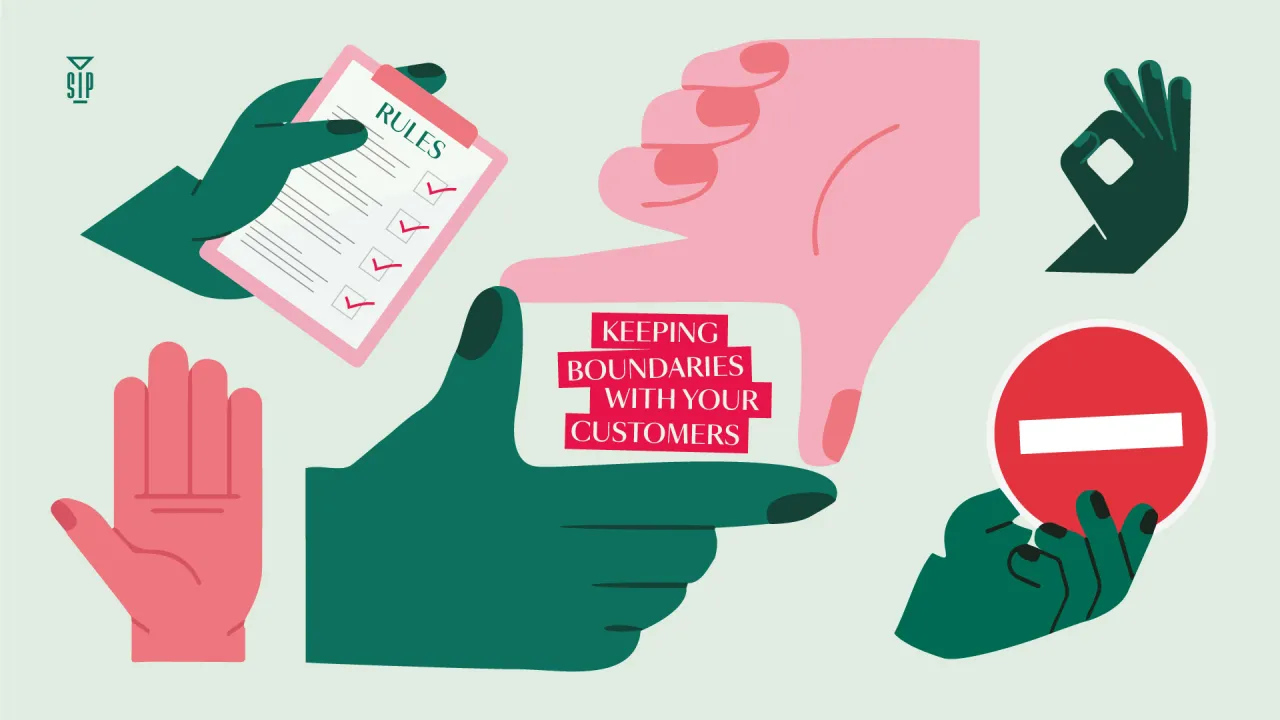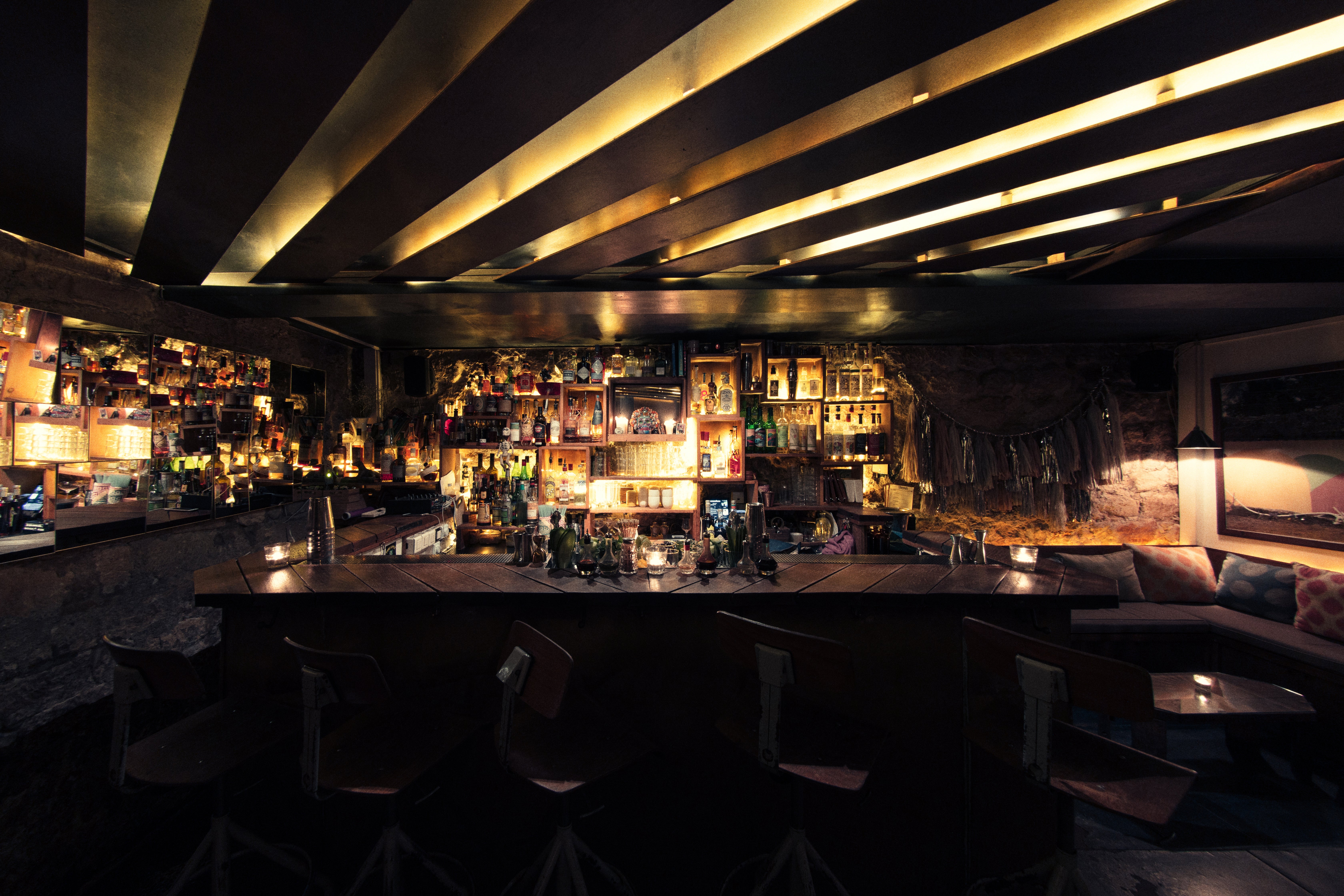Flirting with fire
Perched on a terrace atop the 5-star Bank Hotel in Stockholm, Le Hibou Bar commands a luxurious view across rooftops of the Swedish capital. From the comfort of crisp white lounge chairs, customers sit back, relax and enjoy the affable and attentive service.
Is it friendly, or flirty? It might not be taught in an online bartending course, but being personable is an essential part of the job, says bar manager Adam Myrgard: “Be charming and inviting, get people to stay at the bar.”
If a customer goes too far, such as asking his number, he recommends being open and polite in response. “Sorry, I have a girlfriend at home, but it’s super nice to meet you.”
While gaining a customer’s eye is nice for some, it’s unwanted attention for others.
The Lower East Side is where it’s at for New York’s cocktail scene in 2024. Mister Paradise on 1st Avenue is barely a stumble from the likes of Double Chicken Please (No. 2 World’s Best Bars), Super Bueno and Attaboy. If it’s bubbling with life and energy, that’s probably because general manager Kristine Gutierrez has her hands on the bubble gun.
In a high-profile career across Nomad restaurants, bar establishments and other live entertainment, she’s not the first female bartender to express discomfort with certain customer behaviour.
“Even though I’m general manager, I’m a woman, and my safety is something I have to be conscious of, even though I’m in a position of power.” In times past, she has removed herself to the kitchen to escape lecherous customers.
Yet she is optimistic for the new generation, especially at her current bar: “The clientele tends to lean younger, and most of the guests come in groups of friends. The younger generation tends to have a decent understanding of picking up cues, acting appropriately, and can be more respectful of boundaries.”
Think like a social worker
In Glasgow, Scotland, Rebekah Sapato works the floor at a small and cheery venue on Gibson Street, serving all-day breakfast, coffee and cocktails. Her background though is in social work, training she regularly calls upon. What is hospitality if not a social workplace at heart?
She loves customer interaction, but sets the boundaries on her terms. “There was a thing I saw teachers often use when students had behaviour that they didn't appreciate,” she says. “They would very kindly say, ‘No, thank you’, and then redirect them.”
In the hospitality context, Rebekah draws on prepared responses to deflect any unwanted approach and change the conversation back to the customer’s experience of the table. Don’t forget, she says, “the reason they're really there is the food and drink.”
Friendly advice on friends
Few other industries encourage you to bring friends to work, perhaps for good reason: inviting an entourage can come at your cost.
The expectation of preferential treatment, boisterous behaviour, free shots, or command of the playlist are some of the annoying ways friends make their presence felt.
Adam from Le Hibou sees two ways of handling such situations. “Either you go the friendly way, ‘Drink some water, have fun, stay here’, or basically tell them, ‘Shut up and behave’.”
Neither should you worry about the aftermath. Or that’s the advice from one of Melbourne’s youngest bar impresarios, Joe Jones. The former chef opened his first bar Romeo Lane aged 24, and in the days before Christmas unveiled his latest, Purple Pit, a plush basement beneath Melbourne’s banking district.
“Sometimes closing the doors or stopping service is the best thing,” says Jones about managing pals at his bars. “I've done that a million times. You just have to call it out. If they are really your friends, they will understand and forgive you or will allow themselves to be forgiven.”
That celebrity feeling
Then there are bar ‘friends’ who aren’t really friends. Many in hospitality would be no stranger to parasocial relationships, the term for when someone feels you’re a friend due to familiarity, much like a celebrity fan. The feeling is not often mutual.
Adam says the dynamic is common to people working in the industry. “We can be friends over the bar, such as with our regulars, but they need to understand that when I’m off work, we’re not necessarily friends.”
There are times though when the parasocial evolves into something genuine. For Adam, that point is when you start texting them in your free time… and on a daily basis.
Family matters
The last frontier is family. The long days, late nights, and endless socialising make it challenging to maintain personal relationships in the industry.
At Lipstick Bar in the one-time red-light district of Paris, Sam Wassermann is matter of fact about family life. He co-founded the bar a decade ago, and now a father of two, has found the work-life balance considerably different.
“It's really hard to maintain a good relationship when you're with someone that doesn't know this industry,” he says. He now runs a more family-friendly schedule, and makes sure to tuck his children into bed. It surely helps his partner works in the night-time economy too.
Secret Sauce – distilled
“We work strange hours and we work a lot,” says Adam Myrgard, but the principles of setting boundaries remain the same. “It’s about being open to your partner (or friend or customer), so they know this is what we do. And if they understand it, they will accept it.”
Please drink responsibly.










